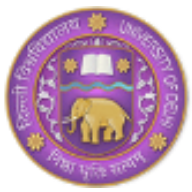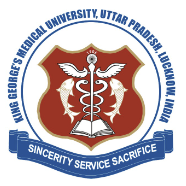King George's Medical University (KGMU), formerly known as King George's Medical College (KGMC), is a long-established and well-respected medical university in India, located in Lucknow, the capital of Uttar Pradesh. The university was founded in 1911 and is named after the then King George V of the United Kingdom. KGMU is a public university that provides medical education, research, and advanced medical services. Here are some key facts about KGMU:
History and Heritage:
The origins of KGMU can be traced back to 1911, when it began operations as a medical college.
In 2002, KGMC was upgraded to a university and renamed King George's Medical University.
Academic Structure:
KGMU offers a variety of medical education programs, including undergraduate (MBBS), postgraduate (MD/MS/Diploma), doctoral (PhD), and other health science programs.
The university has several colleges and departments covering a number of medical specialties including internal medicine, surgery, pediatrics, obstetrics and gynecology, ophthalmology, otolaryngology, anesthesiology, radiology, pathology, etc.
Education and Research:
KGMU is known for its high-quality medical education, focusing on the combination of theory and clinical practice.
The university has advanced teaching facilities and laboratories to support medical education and research.
KGMU also has strong strengths in medical research, especially in the fields of infectious diseases, cardiovascular diseases, oncology, etc.
Medical Services:
The hospital affiliated with KGMU provides comprehensive medical services, including outpatient services, inpatient treatment, emergency care, and specialist services.
The hospital is an important medical center in Uttar Pradesh and the entire northern region of India, serving a large number of patients.
Campus and Facilities:
KGMU has a vast campus equipped with modern teaching buildings, laboratories, libraries, dormitories and sports facilities.
The campus facilities also include a large hospital complex that can accommodate thousands of patients and provide students with clinical internship opportunities.
International Vision:
KGMU maintains cooperative relations with many medical schools and research institutions internationally.
Through these collaborations, KGMU is able to conduct international exchanges, share research results, and provide students with opportunities to study and conduct research abroad.
Graduate Prospects:
KGMU graduates have good career prospects in the medical field in India and around the world.
Many graduates work in top hospitals, research institutions and public health departments at home and abroad.
Social Contribution:
KGMU not only contributes to medical education and research, but also plays an important role in public health education and social medical services.
The school is involved in several community health projects and is committed to improving the health of the local community.
-

Anna University
-

Shoolini University/Shoolini University of Biotechnology and Management Sciences
-

Jamia Millia Islamia
-

Manipal University/ Manipal Academy of Higher Education
-

VIT University/Vellore Institute of Technology
-

Savitribai Phule Pune University/University of Pune
-

Indian Institute of Science
-

Banaras Hindu University
-

Jawaharlal Nehru University
-

University of Delhi
-

Mesoamerican University
-

Istmo University
-

Mariano Galvez University of Guatemala
-

Regional University of Guatemala
-

Galileo University
-

Francisco Marroquín University
-

Rafael Landívar University
-

University of the Valley of Guatemala
-

University of San Carlos of Guatemala
-

Technological Institute of Tlaxcala Plateau
-

Golfo University
-

Technological University of South Sonora
-

Technological University of Huejotzingo
-

Tizimín Institute of Technology
-

Chilpancingo Institute of Technology

